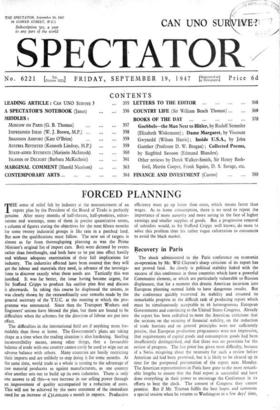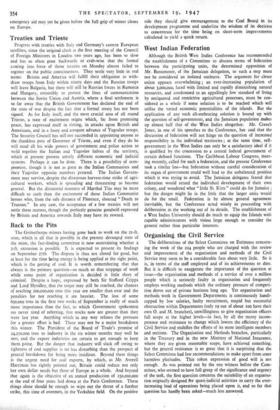Recovery in Paris
The shock administered to the Paris conference on economic co-operation by Mr. Will Clayton's sharp criticism of its report has not proved fatal. So closely is political stability linked with the success of this conference in those countries which have a powerful Communist element, or which are particularly vulnerable to Russian displeasure, that for a moment this drastic American incursion into European planning seemed liable to have dangerous results. But the conference quickly recovered its stability and resumed its remarkable progress in the difficult task of producing report which must be simultaneously acceptable to 16 heterogeneous European Governments and convincing to the United States Congress. Already the report has been redrafted to meet the American criticisms that the sections on the securing of financial stability, on the reduction of trade barriers and on general principles were not sufficiently precise, that European production programmes were not impressive, that requirements of capital goods and consumption goods had been insufficiently distinguished, and that there was no provision for the review of progress. The last point has given most difficulty, because of a Swiss misgiving about the necessity for such a review before American aid had been promised, but it is likely to be cleared up in time for the postponed presentation of the report next Monday. The American representatives in Paris have gone to the most remark- able lengths to ensure that the final report is successful and have done everything in their power to encourage the Conference in its efforts to beat the clock. The consent of Congress they cannot promise. But if Mr. Truman fulfils the best hopes and summons a special session when he returns to Washington in a few days' time, emergency aid may yet be given before the full- grip of winter closes on Europe.



































